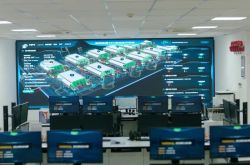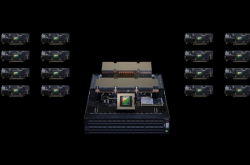BR100's "Fortuna" moment
![]() 10/11 2024
10/11 2024
![]() 677
677
In Roman mythology, Fortuna is the goddess of fate, and her name itself derives from the Latin word for "luck." Her image is often associated with a constantly spinning wheel, symbolizing the impermanence and unpredictability of fate. Meanwhile, China's AI chip unicorn, BR100, is experiencing its own "Fortuna" moment.
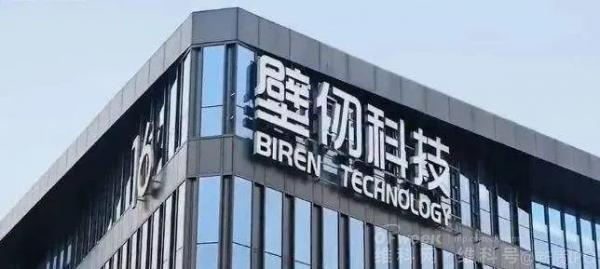
Recently, after the disclosure of AI chip unicorn BR100's IPO coach , China's A-share and Hong Kong stock markets have seen significant incentives amid the turnaround in international financial markets. Hard tech companies representing new productive forces, such as Cambricon and SMIC, have seen strong value recovery, with cumulative gains exceeding 50% in three trading days since September 27. Chinese semiconductor companies have generally rebounded strongly, and despite a significant adjustment on October 9, the semiconductor sector remained relatively stable.
The new IPO research team believes that given the long-term demand for computing power in AI 2.0 and the context of Chinese chips benchmarking NVIDIA, Suiyuan Technology and BR100's IPO launches follow their own development rhythms and signify that after Cambricon, Chinese chip companies are beginning to undergo capital market scrutiny. It remains to be seen how the gradually recovering market will respond to upcoming Chinese AI chip IPOs.
Led by a Harvard PhD with a Strong Investment Background and Former President of SenseTime
According to available information, BR100 was founded in 2019, with its products primarily focused on GPUs and DSA dedicated accelerators. In terms of its development path, BR100 initially focused on cloud-based general-purpose intelligent computing, gradually achieving breakthroughs in domestic high-end general-purpose intelligent computing chips in multiple fields such as AI training and inference.
Notably, BR100 has raised over RMB 4.7 billion in cumulative funding within just 18 months, setting a record for domestic chip startup funding. Investors include Qiming Venture Partners, IDG Capital, Walden International, Ping An Group, Hillhouse Capital, Gree Capital, Songhe Capital, Yunhui Capital, Guosheng Capital, and China Merchants Capital, among others.
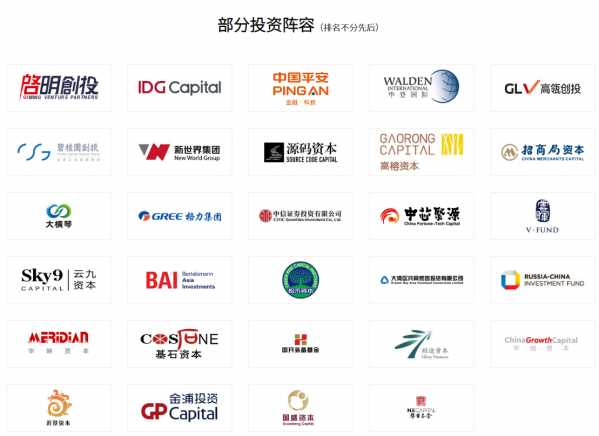
A startup's ability to secure investments from prestigious funds in a short period often hinges heavily on the founder's capabilities.
Zhang Wen, the founder, chairman, and CEO of BR100, does not have a technical background but boasts a rich academic and professional history. According to available information, Zhang Wen holds a Juris Doctor degree from Harvard University. Prior to founding BR100, he worked as a senior investor on Wall Street and served as CEO of Yingrui Optoelectronics Technology, founded by SMIC's founder, Zhang Rujing, during his second entrepreneurial venture. From 2018 to 2019, Zhang Wen served as President of SenseTime, leading the company's efforts to establish its headquarters in Shanghai.
It is evident that Zhang Wen is a high-starting entrepreneur with strong networking and capital expertise, which helps explain why BR100 has been able to recruit top-tier technical teams and attract capital investment.
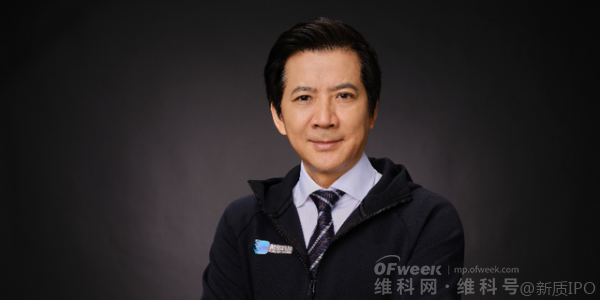
According to our IPO research, BR100's technical team is impressively experienced, with members hailing from top companies such as NVIDIA, AMD, Alibaba, Oracle, Huawei, and Qualcomm. For instance, Allen Lee, a former AMD global vice president with 30 years of experience in the GPU field, joined BR100 in 2021 as Co-CEO. Xu Lingjie, former head of AI & GPU at Alibaba Cloud and an NVIDIA GPU architect, serves as BR100's product marketing leader.
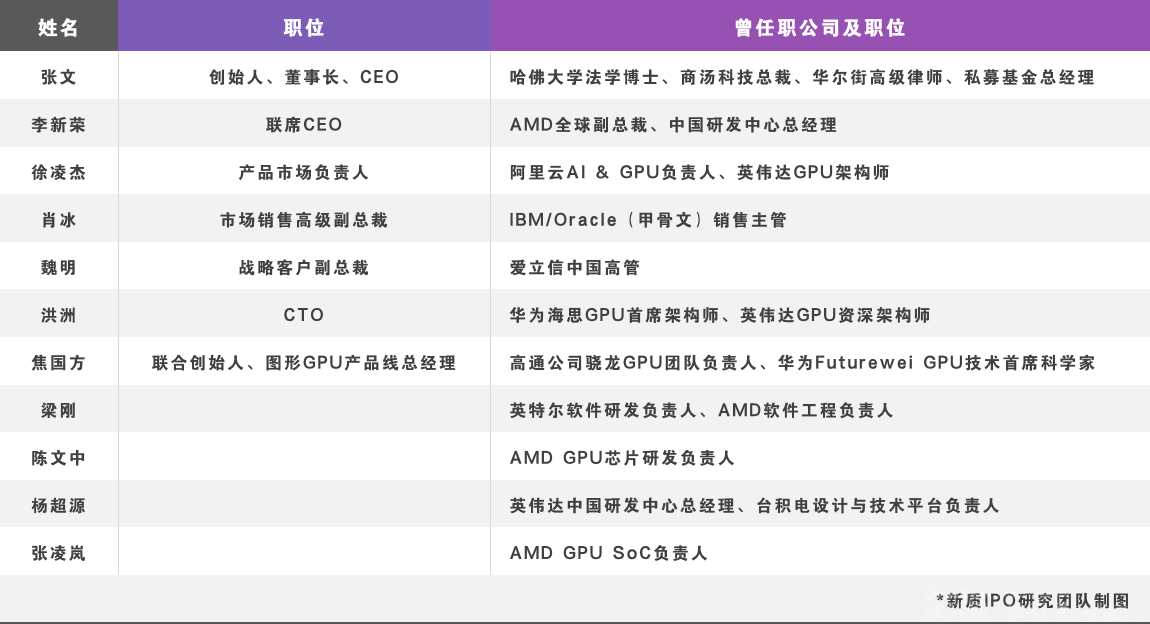
Market Response Hinges on Fundamentals and Performance
Global demand for AI chips continues to grow, with market capacity expanding steadily. According to Gartner, the total revenue of AI chips is projected to reach USD 71.3 billion in 2024 (up from USD 53.7 billion in 2023) and is expected to increase to USD 92 billion by 2025. Within the total AI chip revenue in 2024, computer electronics are likely to account for USD 33.4 billion, or 47% of all AI chip revenue, with USD 21 billion coming from datacenter products, accounting for 29.6%. Other sources of AI chip revenue will be automotive electronics (USD 7.1 billion) and consumer electronics (USD 1.8 billion).
Prior to BR100 and Suiyuan Technology, Cambricon was the most well-known AI chip company among investors in China. Domestically, Cambricon is the first AI chip stock in China, but the market's long-term focus on Cambricon's performance has remained on the gap between revenue and losses. In its eight years of operation, all seven annual reports released by Cambricon have shown losses, with cumulative losses exceeding RMB 5 billion. This is the inertial way of thinking when the market evaluates many long-term companies.
Financial reports show that in the first half of 2024, Cambricon achieved revenue of RMB 64.7653 million, a year-on-year decrease of 43.42%, and a net loss attributable to shareholders of the parent company of RMB 530 million, an increase of 2.7% year-on-year. In October 2023, five founding shareholders of Cambricon, namely SDIC Venture Capital, Nanjing Zhaoyin, Hubei Zhaoyin, Ningbo Han Gao, and Paleozoic Venture Capital, all achieved clearance-style reductions, with cumulative reductions of over RMB 4.1 billion in cash. Earlier, iFLYTEK and Ali Group also reduced their holdings in Cambricon.
As the external environment changes and the market gradually recovers, confidence in long-term companies is growing in the secondary market. It can be observed that since 2023, Cambricon's share price has soared by 535%, ranking first among nearly 700 AI concept stocks on the A-share market. Recently, during the super rally in the A-share market, Cambricon set a new all-time high in its share price, with a market value exceeding RMB 140 billion.
The reason for this is that technological breakthroughs have begun to demonstrate the potential for global top-tier products. In 2023, Cambricon released Thinker 590, whose overall performance should be close to 80% of that of the A100.
Therefore, if BR100 hopes to achieve a reasonable valuation after going public, its products and fundamentals are crucial. It is reported that BR100 lit up its first general-purpose GPU chip, the BR100 series, in March 2022, marking a significant advance in the field of high-end general-purpose intelligent computing chips. The BR100 series chip is developed based on an independently original chip architecture, using a 7-nanometer process and incorporating various industry-leading chip design, manufacturing, and packaging technologies, including Chiplet technology.
At the 2024 Global AI Chip Summit, BR100 unveiled its independently original heterogeneous GPU collaborative training solution for the first time. According to the introduction, this solution breaks through the problem of heterogeneous computing power isolation for large models, achieving the first breakthrough in China's heterogeneous multi-GPU chip computing power training technology field.
The new IPO team believes that Chinese chip companies represented by BR100 bear the historical responsibility of competing with international giants such as NVIDIA but also face competition from domestic peer companies, with talent and profitability pressures posing challenges.
BR100's timing for its IPO sprint is precise, and its luck is good enough. However, we also urge the market and investors to give more time to long-term companies like Chinese chip companies. After all, whether China can emerge with chip companies similar to NVIDIA depends not only on the companies themselves but also on the market investment environment, given that hard tech companies are generally subject to US sanctions.


